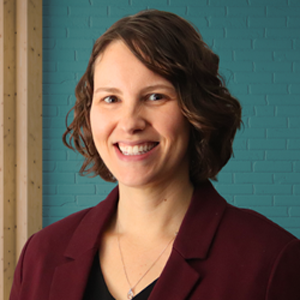“It’s time to complexify the situation, to peel back and ask what’s really going on here.” So began the Rev. Dr. Joan DeVries, keynote speaker at Discipulus’18, a new national gathering on discipleship and evangelism.
A pastor in the Christian Reformed Church and professor of worship arts at Trinity Western University, Dr. DeVries delivered three talks at the conference, held Oct. 18-19 at St. Paul, Bloor Street. Jointly sponsored by the Diocese of Toronto and Wycliffe College’s Institute of Evangelism, it attracted more than 100 Christians from across Canada.
Dr. DeVries began by examining the challenge of evangelism in contemporary Canadian culture. She presented statistics on religious affinity in Canada over the past six decades, all of which point to a steady decline in church attendance.
“That same story is repeated in congregation after congregation, not just in my denomination but in most denominations across urban and rural settings and all across the country,” she said. “The question then is, what do we do about this?”
Dr. DeVries encouraged her listeners to reflect on what God is calling the Church to do and be, and on what’s happening in their own communities. “If I came as an anthropologist from another planet and visited your church, what would I see?” she asked. “What are the priorities in your church? What is your congregation living out?”
She then focused on the way forward, including the need to be deliberate about the kind of formation happening in churches. “Whatever you are doing, people are being formed,” she said. “Is it appropriate formation or is it inappropriate formation?”
Formation, she said, happens intentionally through stated teachings in sermons and mission statements, but also unintentionally. “Our spaces communicate, our surroundings can have emotive impact, but they also teach values,” she said. “What does the sign look like? What kind of cars are on the parking lot? I know you can’t control that, but they speak.”
She also emphasized that formation will look different for new Christians than for long-time members of a congregation. “They too need to be formed. Perhaps they actually need to be reformed, and perhaps they need to unlearn some things in order to be reformed,” she said. “Sometimes we need to reframe things for people in terms of God’s bigger mission.”


That theme emerged during two sets of workshops that focused on practical strategies and resources church leaders have used to place discipleship at the heart of their communities. In a workshop on disciple-making in church operations and structure, the Rev. Canon Beth Benson, priest-in-charge of St. Mary and St. Martha, Toronto, spoke about reframing conversations around finances to focus on God’s mission.
An amalgamation of four churches that had been struggling to survive financially, the parish has recently launched Growing Healthy Stewards, a program developed in the Diocese of Toronto. “The idea that we’re unpacking now is that it is God’s abundance that is at work in this new amalgamation. All that we have, all that we are, is about the gifts that are freely given, particularly his Son given for us,” she said. “It’s a whole new conversation. You can imagine how radical it is when you’ve only known scarcity.”
Canon Benson also said that using a narrative budget is helping her congregation to consider how its resources are contributing to God’s work in the world. “It’s been repositioned as stewards of God’s money, for God’s purposes in this part of the city of Toronto,” she said. “It’s not a line item – here’s the furnace bill – because the furnace bill is for the purpose of mission.”
Archbishop Colin Johnson was the preacher at a Eucharist held during the conference, and the Rev. Canon Dr. Judy Paulsen, chair of the planning team, thanked him for his support over the years. “We owe a tremendous amount to Colin and his support of all things to do with disciple-making and evangelism,” she said. “We’re very thankful for his ministry as he moves towards retirement.”




Paul writes to the Galatians